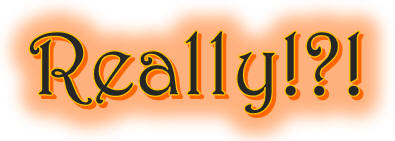The United States Constitution
Why the 2nd Amendment was so High on the List
The Constitution of the United States is the supreme law of the United States of America. Since the Constitution came into force in 1789, it has been amended 27 times, including one amendment that repealed a previous one. According to the United States Senate: "The Constitution's first three words - We the People - affirm that the government of the United States exists to serve its citizens. For over two centuries the Constitution has remained in force because its framers attempted to separate and balance governmental powers to safeguard the interests of majority rule, minority rights, liberty, equality, and of federal and state governments.
While there are several amendments, the ones that are the most debated at this time are the first and second amendments.
The First Amendment prohibits Congress from obstructing the exercise of certain individual freedoms: freedom of religion, freedom of speech, freedom of the press, freedom of assembly, and right to petition. Its Free Exercise Clause guarantees a person's right to hold whatever religious beliefs he or she wants, and to freely exercise that belief, and its Establishment Clause prevents the federal government from creating an official national church or favoring one set of religious beliefs over another. The amendment guarantees an individual's right to express and to be exposed to a wide range of opinions and views. It was intended to ensure a free exchange of ideas, even unpopular ones. It also guarantees an individual's right to physically gather or associate with others in groups for economic, political or religious purposes. Additionally, it guarantees an individual's right to petition the government for a redress of grievances.
The Second Amendment protects the right of individuals to keep and bear arms. Although the Supreme Court has ruled that this right applies to individuals, not merely to collective militias, it has also held that the government may regulate or place some limits on the manufacture, ownership and sale of firearms or other weapons. Requested by several states during the Constitutional ratification debates, the amendment reflected the lingering resentment over the widespread efforts of the British to confiscate the colonists' firearms at the outbreak of the Revolutionary War. Patrick Henry had rhetorically asked, shall we be stronger, "when we are totally disarmed, and when a British Guard shall be stationed in every house?"
The Second Amendment
The Second Amendment (Amendment II) to the United States Constitution protects an individual right to keep and bear arms and the right to a well regulated militia. It was ratified on December 15, 1791 as part of the Bill of Rights. It supports the natural rights of self-defense and resistance to oppression, and the civic duty to act in concert in defense of the state.
The Second Amendment was put in place (and very high on that amendment list), because the founders of this country had first hand experience with the need to have guns (and other weapons).
“They’re not after our guns.
They’re after
us.
Our guns are just in their way.”
- social media post
The biggest problem with any steps that control guns is that it will set a president that additional steps can be easily implemented until all legal rights to own a gun are gone, thus erasing the second amendment to the constitution. Tax increases work in a similar way (Tax issues are covered in a separate topic).
Trusting the Government
Many people would argue that we have no use for the Second Amendment today because the government is trustworthy. Is this truly the case? It seems that whichever party is in power and holding the presidency or majority of either house, there are people and groups that feel threatened by the situation.
Since the Second Amendment acts as a deterrent, we can never measure exactly how much it has been effective. Perhaps the notion that people feel safe with our government after over 200 years is a testament to the Second Amendment value in balancing power with the citizens.
James Madison wrote how a federal army could be kept in check by state militias, "a standing army ... would be opposed [by] a militia." He argued that state militias "would be able to repel the danger" of a federal army,
The Second Amendment means no more than that it shall not be infringed by Congress, and has no other effect than to restrict the powers of the National Government.
-- Author: TJ Elias
Related Articles:
Page Last Updated: 17 April 2025
